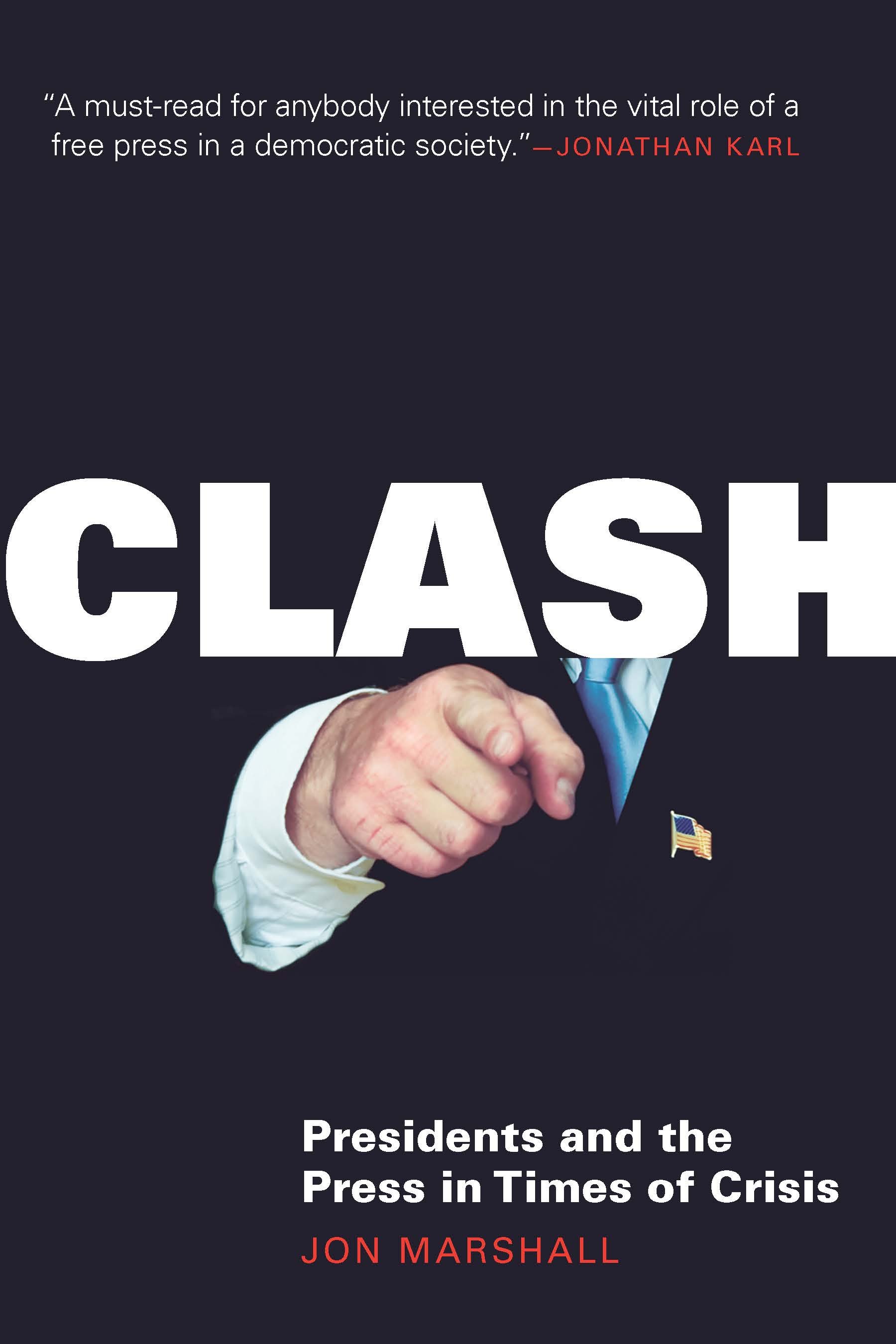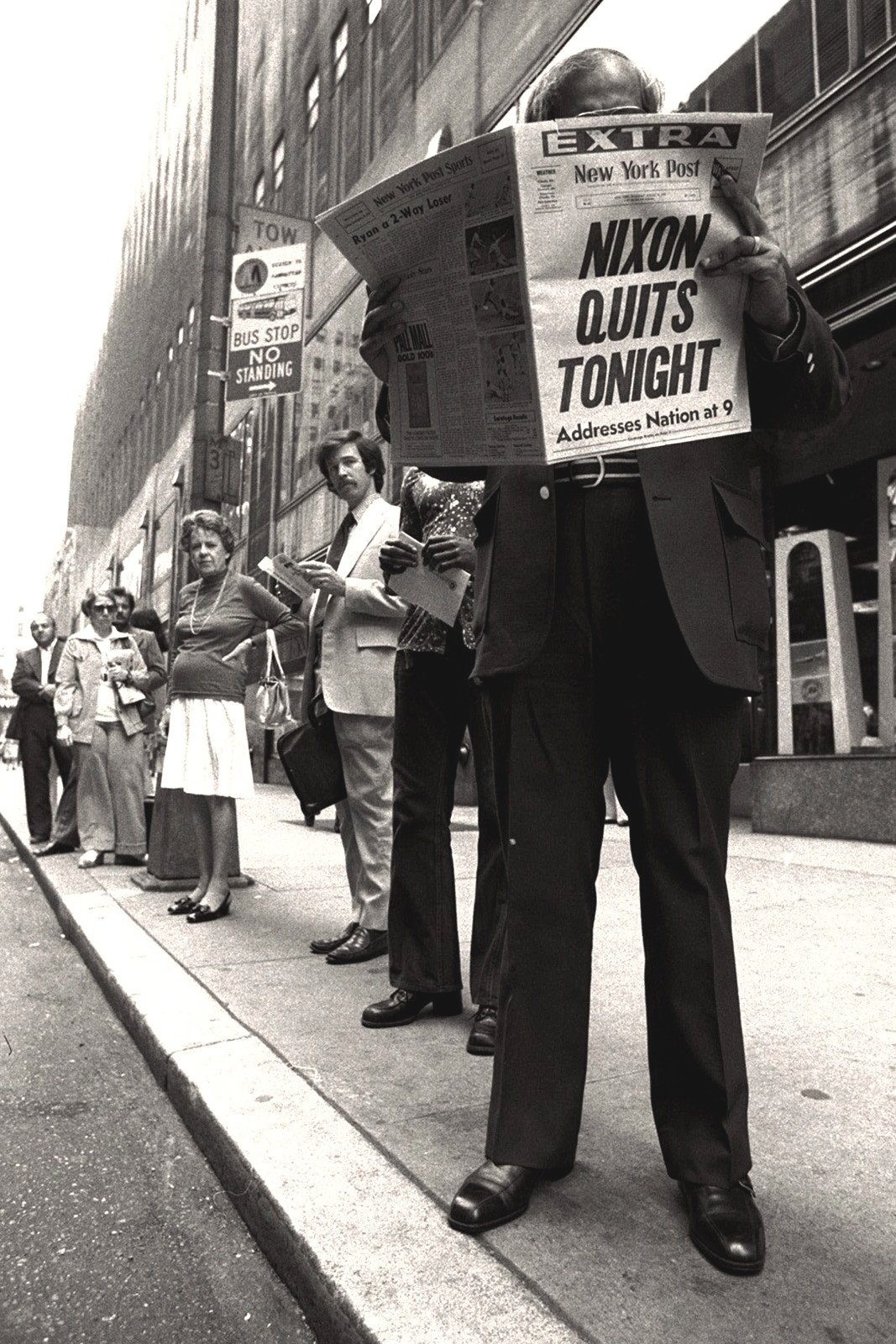
Reviews and Testimonials for Clash: Presidents and the Press in Times of Crisis
-
“Jon Marshall offers a compelling tutorial on the often troubled relationship between American presidents and the reporters who cover them. Clash is a must-read for anybody interested in the vital role of a free press in a democratic society.”
—Jonathan Karl, chief Washington correspondent of ABC News and former president of the White House Correspondents’ Association
-
“From Adams to Trump, from Lincoln to Obama, American presidents have a symbiotic/adversarial relationship with the press. Jon Marshall’s carefully researched book takes us inside the hard-nosed reporting, the confrontations, calculations and prevarications, to paint a picture of the sometimes tortured connection between two of the most powerful forces in our country: our commander in chief and the sprawling news media, in moments of high tension. The result is a clearer understanding of this high stakes, complex relationship that has consequences for every American.”
— Judy Woodruff, Anchor and Managing Editor of the PBS NewsHour
-
“Donald Trump didn’t start this war. In Clash: Presidents and the Press in Times of Crisis, Jonathan Marshall skillfully traces a fraught relationship from the republic’s earliest days. But his sobering message in this deeply reported book: The financial strain and fragmentation of the news media, and Trump’s willingness to embrace and repeat lies, has presented an unprecedented challenge to journalists, and democracy.”
— Susan Page, Washington Bureau chief of USA TODAY and author, Madam Speaker: Nancy Pelosi and the Lessons of Power
-
“Jonathan Marshall has produced a timely, well-researched exploration of how presidents from John Adams to Donald Trump have tried to suppress press scrutiny of their conduct in the White House. Good reading for voters in assessing President Biden’s relationship with the news media and the American public.”
— Leonard Downie, author of “All About the Story: Power, Politics and The Washington Post” and former Executive Editor of The Washington Post
-
“With Clash Jon Marshall continues to establish himself as a leading scholar of the nexus of journalism and presidential history. His focus illuminates both the perennial awkward dance involving presidents and reporters each trying to lead as the other manages the changing tempo of technology, politics, personal idiosyncrasies, and American mores. Marshall is emerging as a stalwart defender of the First Amendment and engaging storyteller of the clashes between the press and the presidency.”
— Tom Mascaro, author of Into the Fray: How NBC’s Washington Documentary Unit Reinvented the News
-
“This book is informative, intelligent, and inspiring, and it invites Americans to expect more from their press and their presidents during times of crisis.”
- Pam Parry, editor, Journalism History
-
“Widely acknowledged as one of the leading scholars writing about the intersection of presidential history and American journalism, Jon Marshall of Northwestern University has made yet another critically important contribution to the literature in the field. As a follow-up to his well-received “Watergate’s Legacy and the Press,” his newest work, aptly titled, “CLASH: Presidents and the Press in Times of Crisis,” extends well beyond the interests of those within the halls of academe. … Each chapter of the book offers excellent political context with attention to many historic benchmarks and background on how certain presidents publicly faced-up to some unique challenges.”
- Michael Murray, University of Missouri Board of Curators Distinguished Teaching Professor Emeritus, Gateway Journalism Review, June 9, 2022.

Reviews and Testimonials for
Watergate’s Legacy and the Press: The Investigative Impulse
-
“This is a remarkably complete and coherent account of the seminal role that investigative journalism has played in American History”
— Daniel Schorr, longtime NPR commentator and CBS News reporter, three-time Emmy Award winner and Edward R. Murrow Award for Lifetime Achievement in Broadcasting winner
-
“Jon Marshall has written a very readable, deeply researched and wisely analyzed assessment of American investigative reporting before and after Watergate. Based on my decades of practicing, editing, writing about and now teaching accountability journalism, I believe this book should be the benchmark authority for all future examinations of the subject. I know I will be going back to it again and again.”
— Leonard Downie Jr., vice president at large and former executive editor of The Washington Post and Weil Family Professor of Journalism at the Walter Cronkite School of Journalism and Mass Communication at Arizona State University
-
“Jon Marshall captures the power of investigative reporting to keep our democracy strong, just and honest – and, in unflinching terms, the consequences when it’s done wrong or not at all. This is an inspired and inspiring survey of the craft’s past to present that gives me hope for its future.”
— Deborah Nelson, Pulitzer Prize-winning journalist, past president of Investigative Reporters and Editors and author of The War Behind Me
-
“Nearly forty years after the Watergate break-in, the legacy of that scandal continues to cast a shadow on politics and the press in Washington, D.C. How did this happen? What role did journalism play in President Richard M. Nixon’s resignation? What changes in investigative reporting preceded and followed Watergate? And what does this portend for the future? These are the questions addressed in this lucid, well-researched book. … Using an impressive array of primary and secondary sources, Marshall has written the best history of American investigative journalism to date.”
— Mark Feldstein, The Journal of American History, December 2011.
-
“Marshall provides an excellent history of investigative journalism and contributes to the scholarly literature a new appreciation for the press’s performance during the Watergate scandal.”
— James Aucoin, American Journalism, Summer 2011.
-
“This book is a good read for anyone interested in journalism history generally or investigative reporting specifically. It does a very good job of explaining the historical, sociological, economic, political, and legal factors that have contributed in investigative reporting’s good times and bad.”
— Derrigan Silver, Journalism & Mass Communication Educator, December 2012.